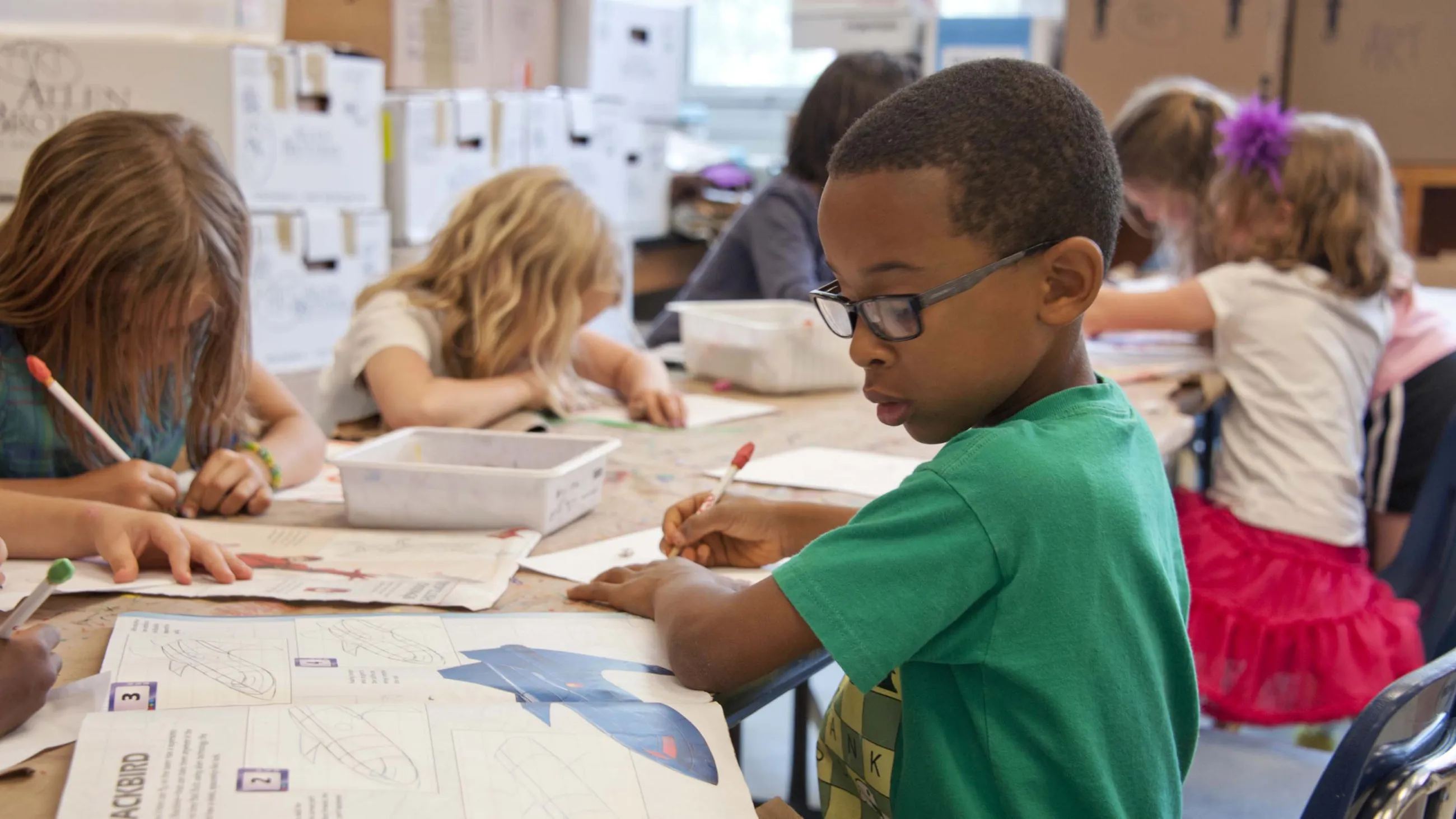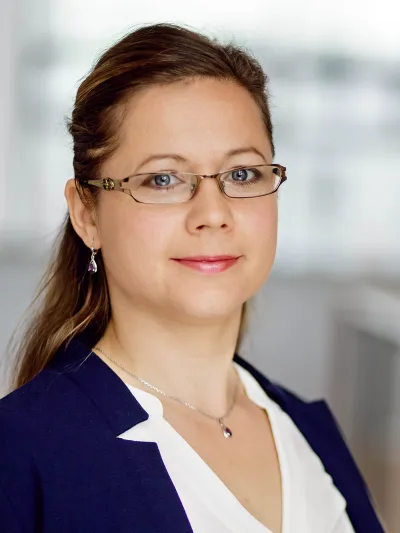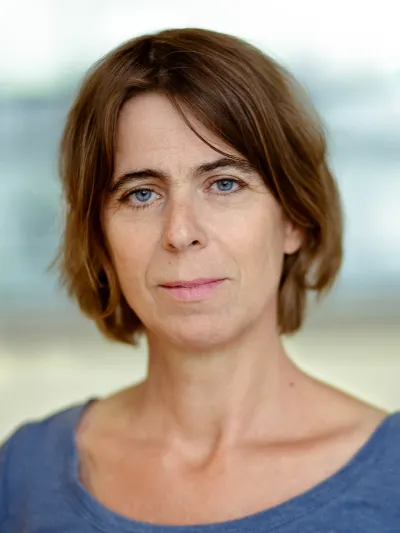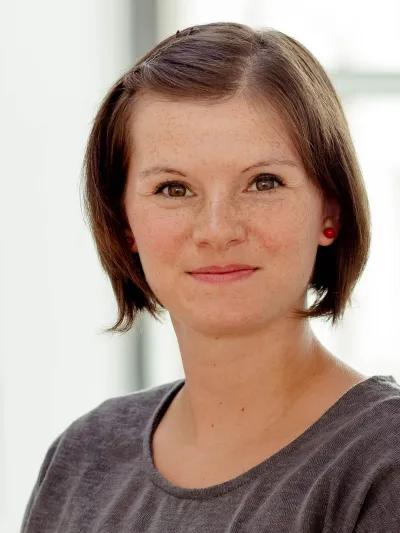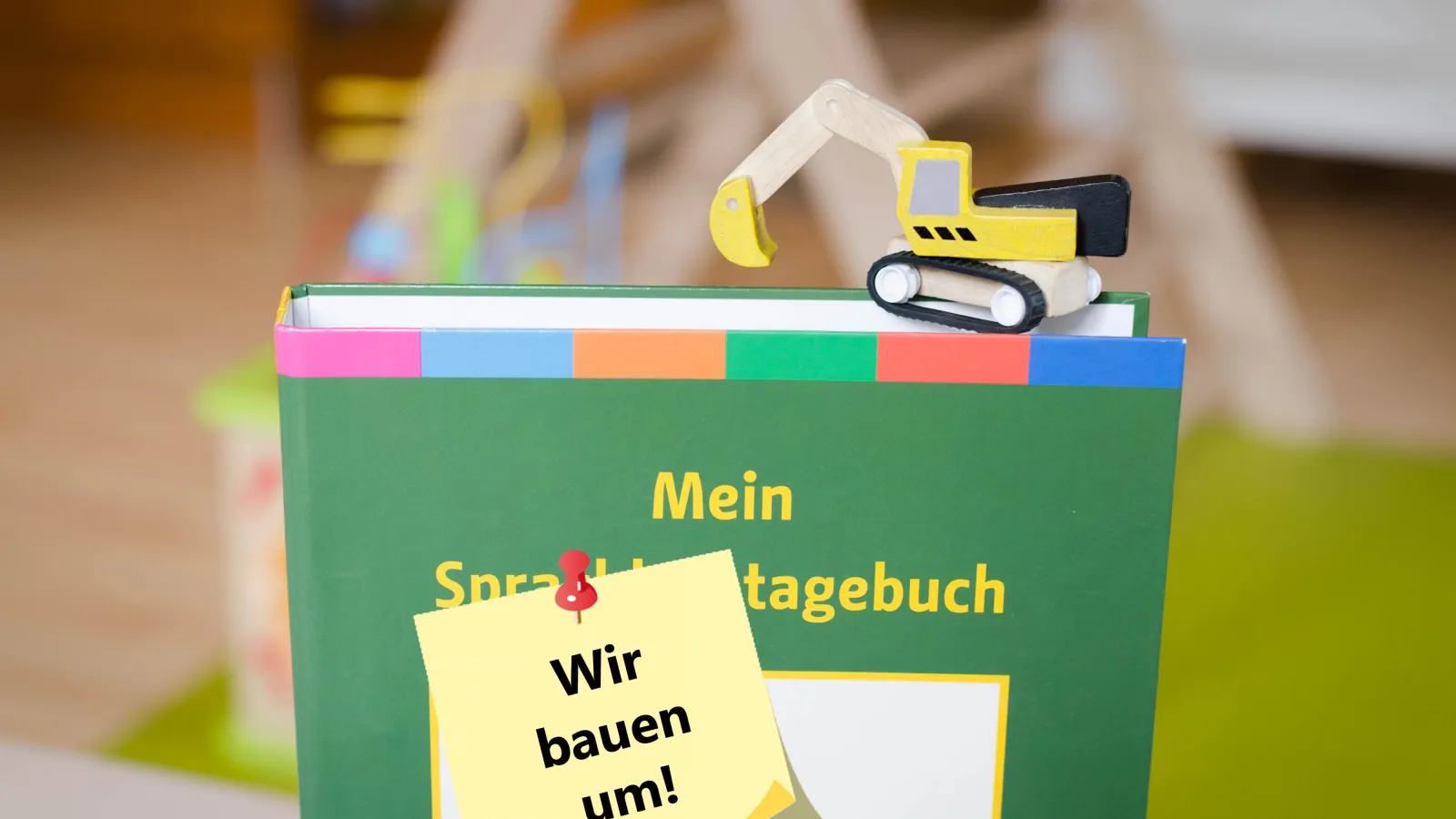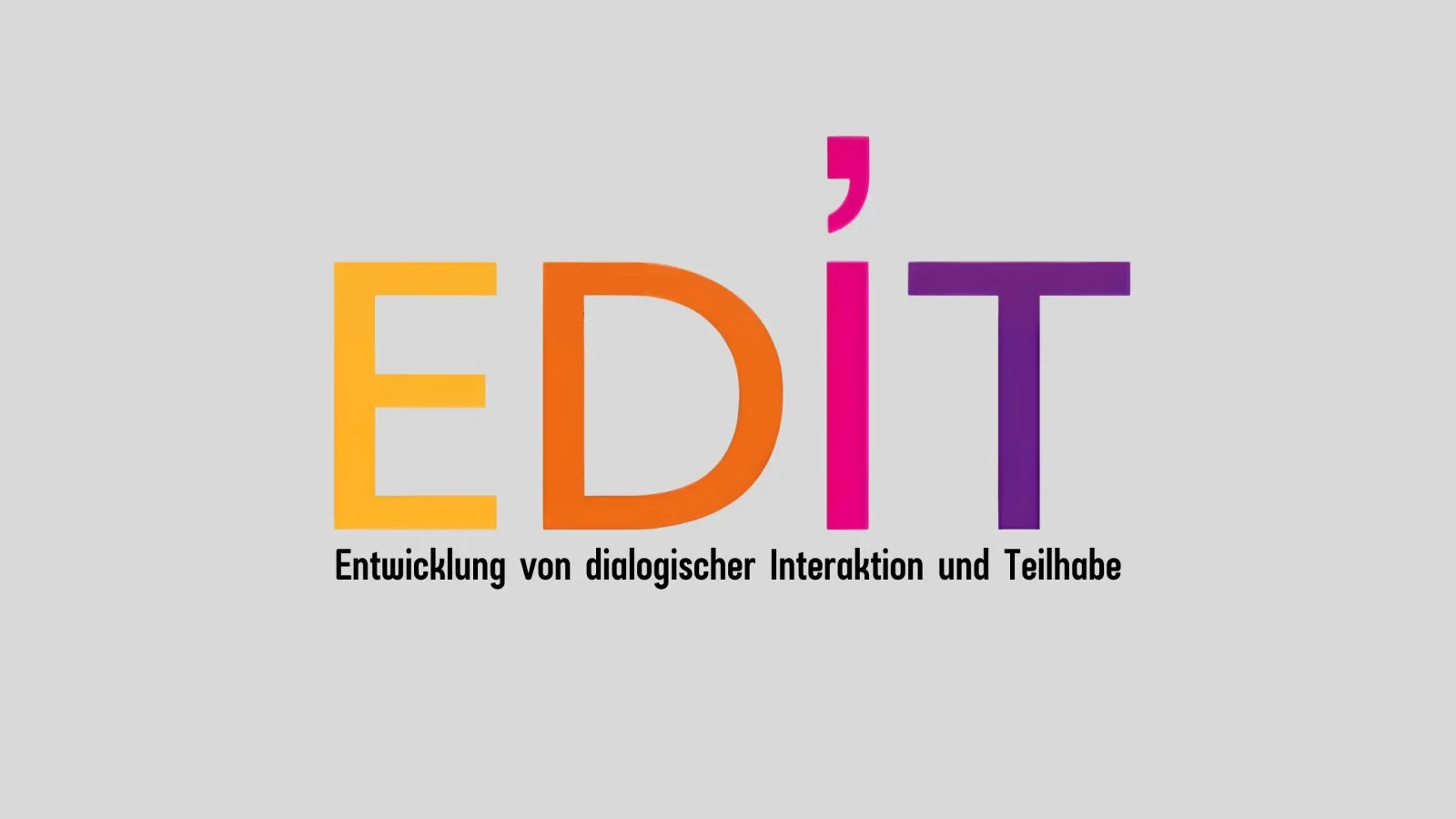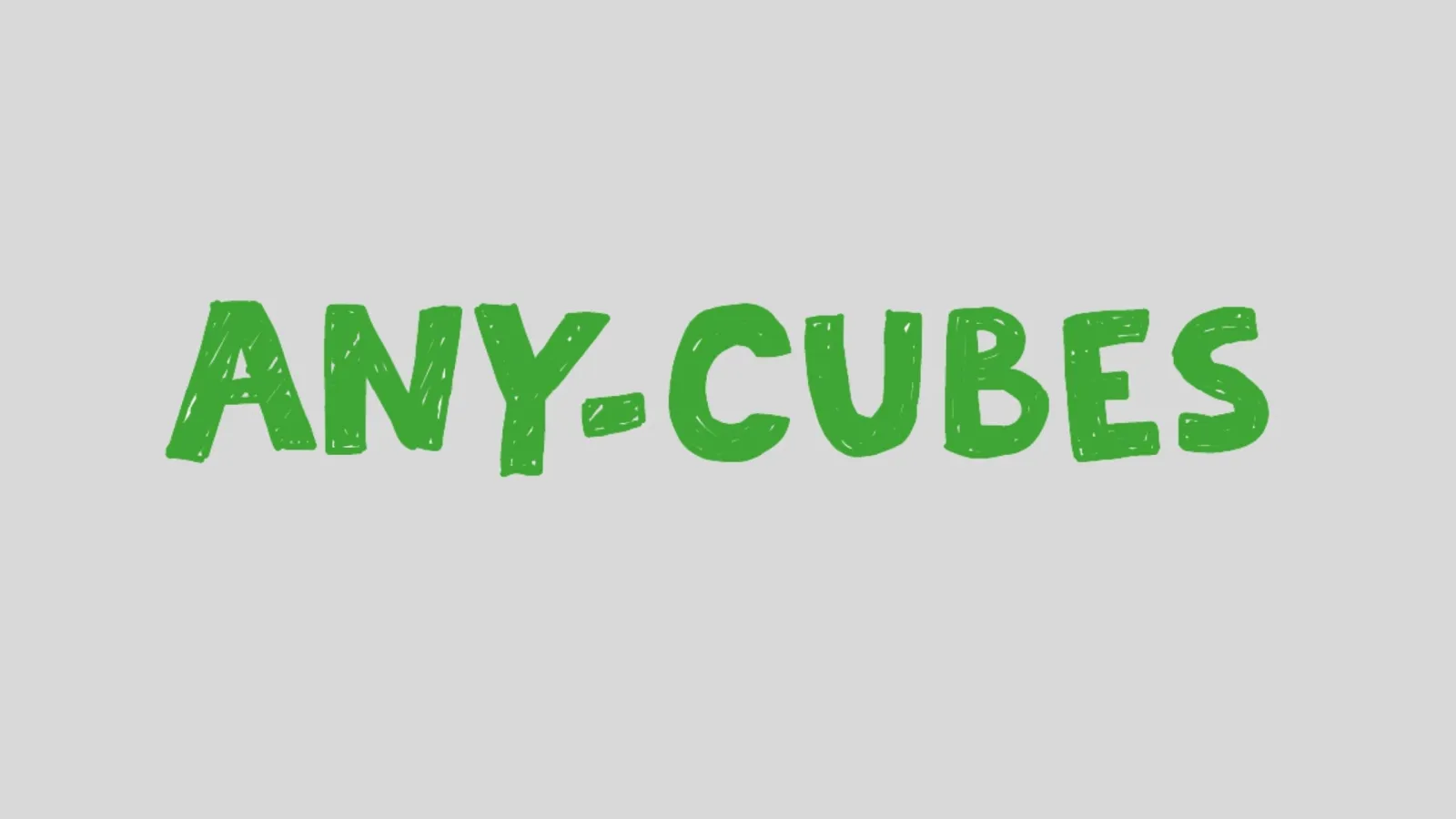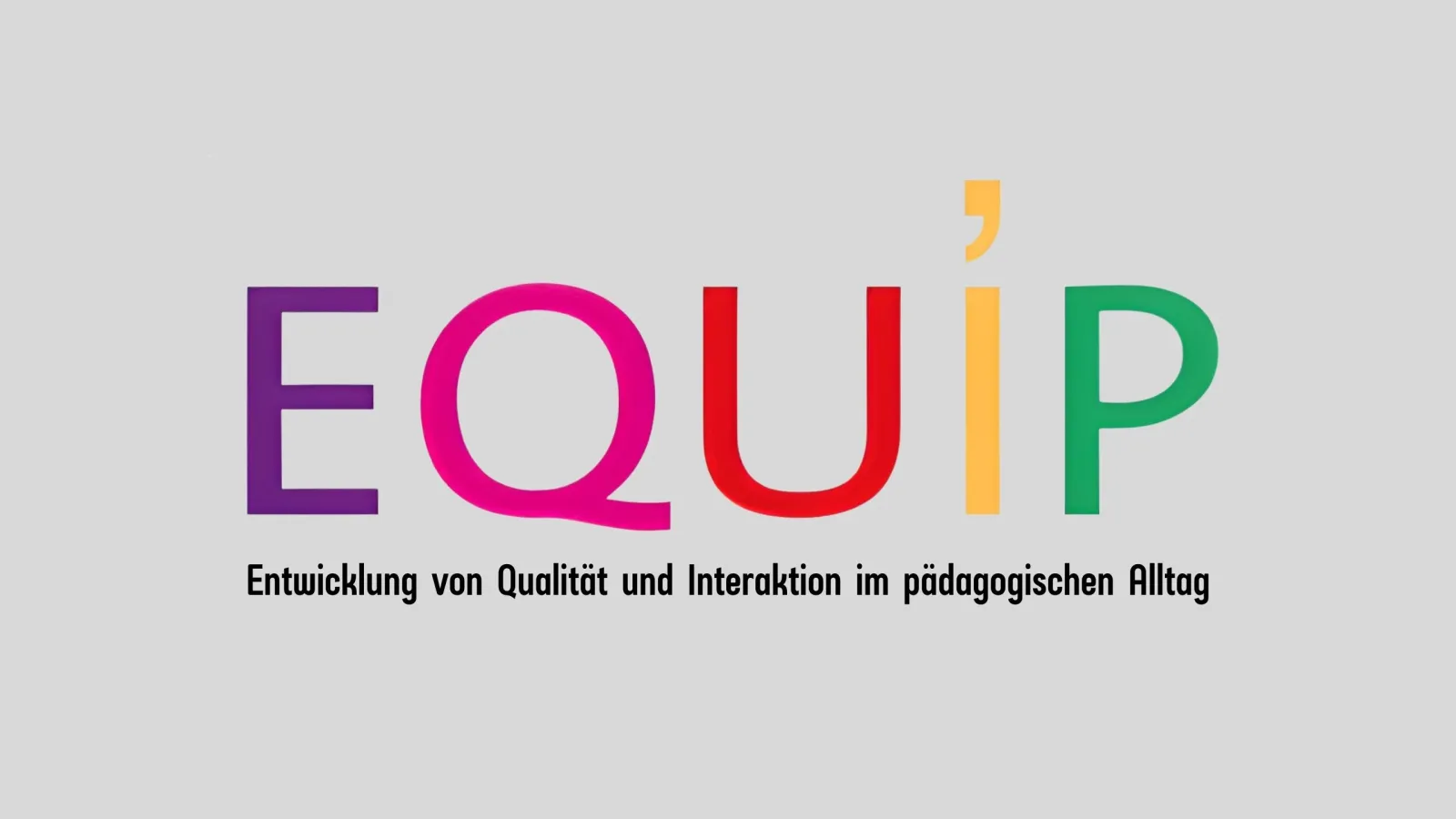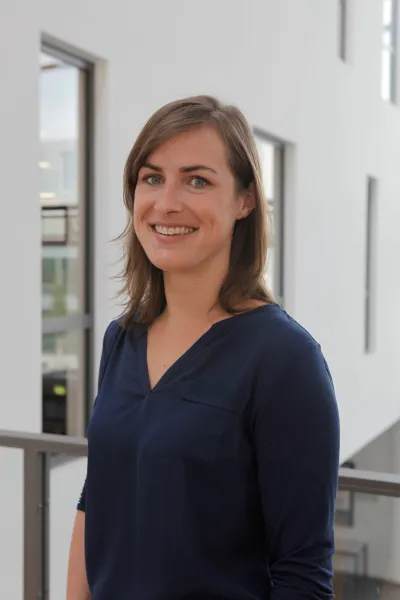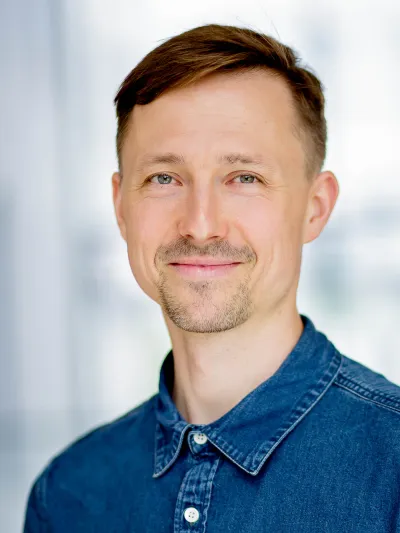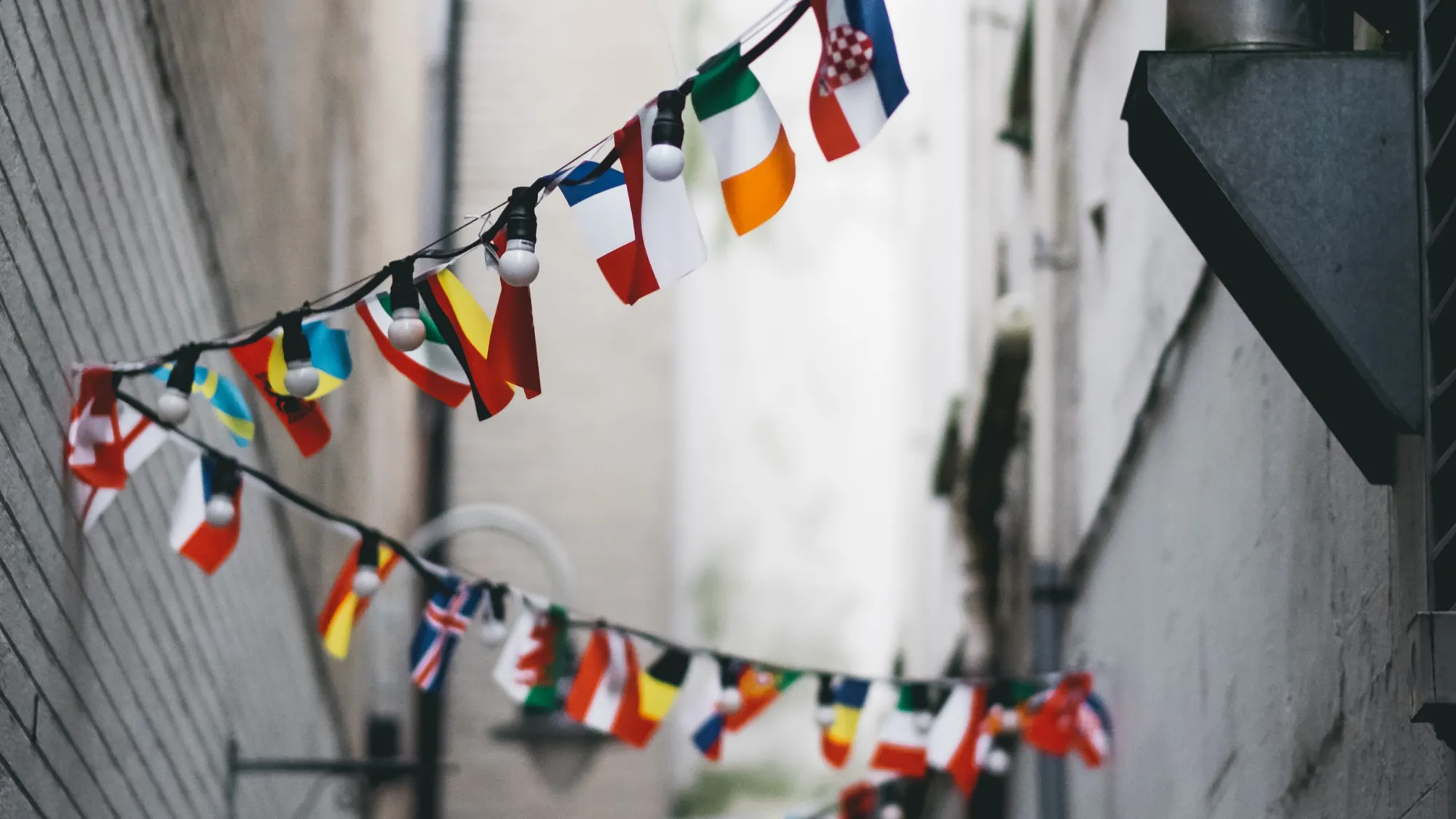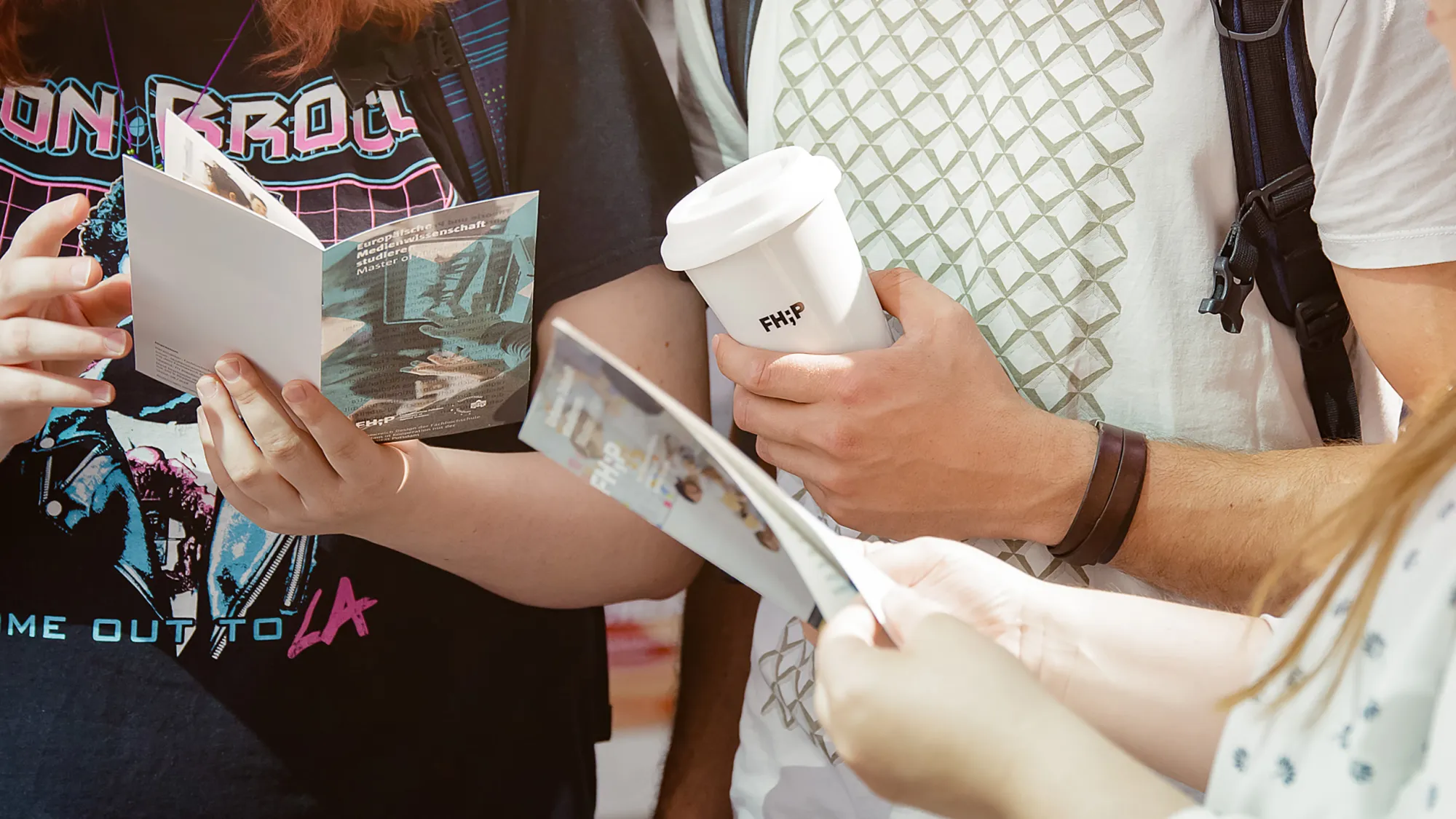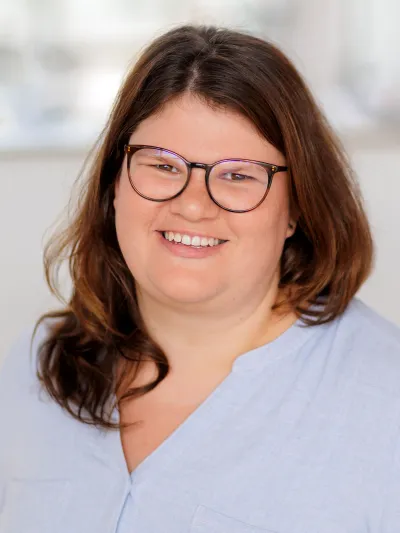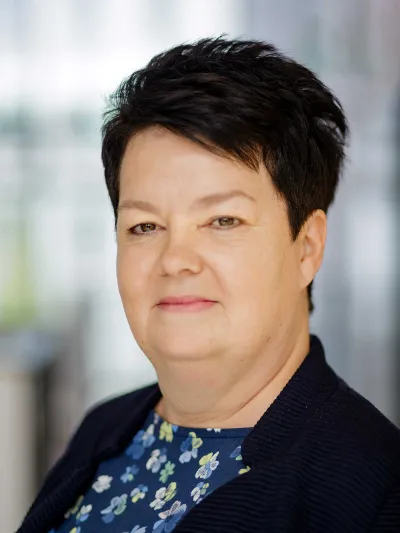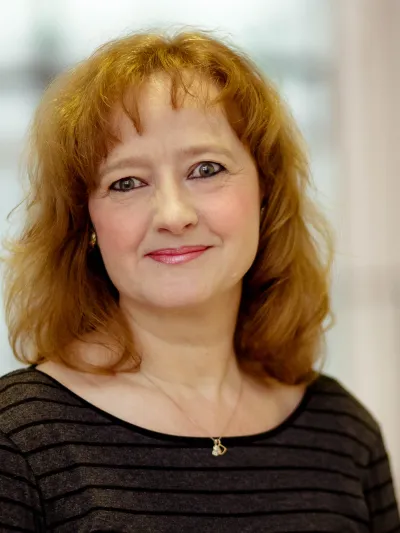You will acquire interdisciplinary knowledge and skills in research and management in order to develop and implement innovative approaches in educational practice. On the research-oriented Master's programme in Early Childhood Studies, you will benefit from a strong network and work as an expert in early childhood education in research, training, management or consulting.
Early Childhood Studies (MA)
4 semesters
15/06 – 15/10 (free of admission)
120 ECTS credits
Profile
Research, steer and develop
In terms of content, the degree programme focuses on research into the design of pedagogical processes for children aged 0 to 12 years and thus includes early childhood as well as day care in day nurseries and after-school care. A central component of the study programme is application-related basic research on questions of early childhood education and development, which arewhich is deepened within the framework of the student's own research interests.
The aim of the Master's programme "early childhood studies" is to train students for highly qualified positions in research, specialist training and professional management. A wide range of professional perspectives open up after completion of the programme.
The focus of the Master's programme is the student's own research interest. This gives students the opportunity to deepen their competences in scientific work from the very beginning. An essential component of the programme is scientific work based on empirical research methods, whereby quantitative-experimental approaches play a particularly important role alongside qualitative approaches. Half of the workload (60 ECTS credits) is therefore completed by developing one's own research project and implementing it within the framework of the Master's thesis. Here, the students - accompanied and supported by the lecturers and fellow students - go through all phases of the empirical research process. This is flanked by corresponding courses. The courses in the research focus are designed as colloquia, which enable open and cooperative work as well as cross-year learning. The modules on the research focus are accompanied methodically and in terms of content by courses in subject and reference sciences as well as in empirical research methods. This gives students the opportunity to deal intensively with a topic, to act as researchers at the same time and to cooperate with partners from research, control and practice in their research area.
Image films: Study Early Childhood Studies
- Get to know the Master's programme "early childhood studies" in under 8 minutes!
- Get more insights into the early childhood studies degree programme here
Is this degree programme right for me?
During your studies, you will develop your own research project and implement it as part of your Master's thesis. You will go through all phases of the empirical research process-accompanied and supported by your teachers and fellow students. Our degree programme is characterised by an open and cooperative atmosphere. The courses are held in German, but a large part of the international research literature on early childhood education is published in English.
You bring these qualities with you
- Interest in research on the developmental and educational processes of children
- Independence, self-reflection and critical judgement, participation in social discourse
- Ability to read and understand professional texts in English
Online info session in 2025
The online information sessions for prospective students will take place on 11th of April and 20th of June, both from 1.00 to 2.00 pm via Zoom.
WG Early Childhood Studies
Unsure? On the Instagram channel of the WG Early Childhood Studies you can get more insights into research and our activities.
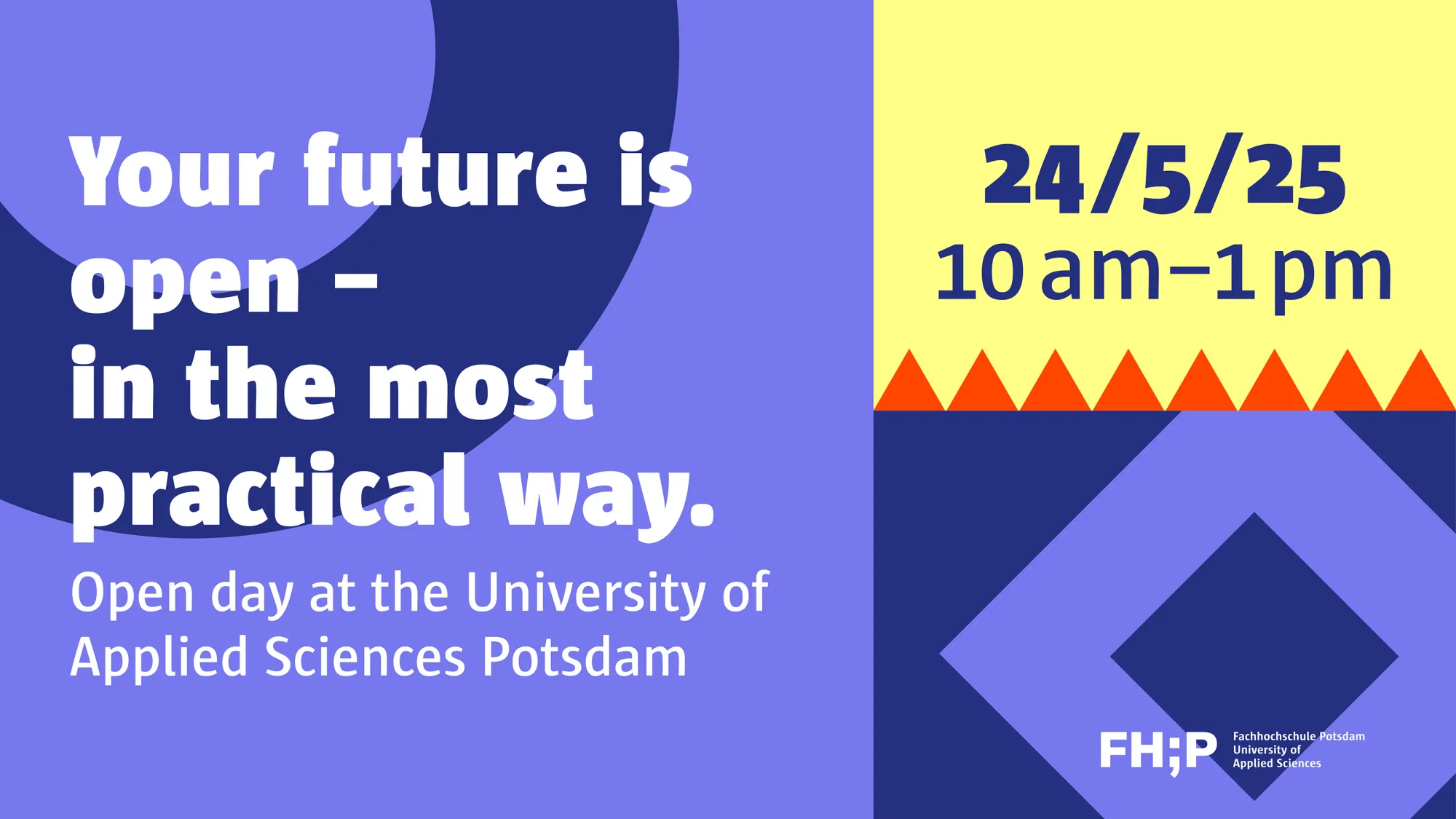
Information day 2025: We are opening our doors
Open Day at the University of Applied Sciences Potsdam: On the 24th of May 2025, you will get to know the diverse study programmes at our university, explore the campus and gain exclusive insights into our modern laboratories and workshops.
Take the opportunity to talk to students and lecturers in person and look forward to a varied programme.
Profile, focus & PINA
Wissenschaftliches Profil & Forschungsschwerpunkt
Contact
The colleagues at the student counselling service provide information to prospective students, first-year students, parents, teachers and students on all general questions about the degree programme. If you have specific questions or concerns about the Master's programme in early childhood studies, please contact the programme coordinator or programme director.
Programme Management
Head of Study Programme (deputy)
Programme Coordination
These degree programmes might also interest you
More courses| Department | Degree programme | Teaching language | Start of study | Application deadline |
|---|---|---|---|---|
| |
Childhood Studies and Children's Rights (MA) | English | Winter semester | Note: This degree programme will no longer be offered from winter semester 2024/25 |
| |
Early Childhood Studies (MA) | German | Winter semester | 15/06 – 15/10 (free of admission) |
| |
MA Social Work with a Focus on the Family | German | Winter semester | 15.05. – 22.06. (NC degree program) |
| |
Social Management (MA) | German | Summer semester | Note: This course of study will no longer be offered from winter semester 2024/25. |
Career Prospects
Career Prospects
In recent years, research on early childhood education has gained in importance. As a result, the need for scientifically qualified experts is increasing – be it in supporting organisations, professional associations, institutions or in the research field. The degree programme early childhood studies prepares you for research activities at universities and in research institutes as well as for the conceptualisation, evaluation, further development and control of offers and measures for content-related quality development in the field of early childhood education.
Research and Development
- Research and teaching at universities, universities of applied sciences and research institutes
- (Practical) research, development and planning at universities and non-university institutions
- Quality and team development and evaluation
- Personnel and organisational development
- Doctoral studies
Offer and advice
- Specialist and organisational advice
- Early education and early help counselling centres
- Training and further training of early childhood education staff (e.g. at technical colleges, further education institutions, youth education centres and in state and federal programmes)
- Public relations work and professional political representation as well as socio-spatial and communal coordination and networking tasks.
Management and control
- System control and administration at municipal, state and federal level
- Management of early education projects (in foundations, providers, professional associations)
- Coordination of supporting organisations and professional associations
- Administrative and management positions in education and social services, especially in state or non-state institutions of early childhood education, youth welfare, continuing education and the school system
- National, regional and local planning functions
- Quality management: development and assurance of pedagogical quality at provider organisations and professional associations
- Representation of the sector in policy-making and networking tasks in socio-spatial and communal contexts.
Alumni voices
Here, former students report on their motivation for choosing a Master's degree programme in Early Childhood Studies (MAFB), on their professional and academic careers to date and on their careers after graduation.
These degree programmes might also interest you
More courses| Department | Degree programme | Teaching language | Start of study | Application deadline |
|---|---|---|---|---|
| |
Childhood Studies and Children's Rights (MA) | English | Winter semester | Note: This degree programme will no longer be offered from winter semester 2024/25 |
| |
Early Childhood Studies (MA) | German | Winter semester | 15/06 – 15/10 (free of admission) |
| |
MA Social Work with a Focus on the Family | German | Winter semester | 15.05. – 22.06. (NC degree program) |
| |
Social Management (MA) | German | Summer semester | Note: This course of study will no longer be offered from winter semester 2024/25. |
Study Content
Course of studies
The standard period of study for the full-time degree programme early childhood studies is four semesters and concludes with a Master of Arts degree.
The degree programme can be completed full-time or adapted to individual needs and completed part-time.
Here you can find the exemplary study plan for full-time studies as well as exemplary suggestions for extending or planning studies on a part-time basis. In the case of part-time models, it should be noted that seminars may overlap in terms of time. If this is the case, the head of the programme should be informed so that an individual solution can be sought together.
| Semester 1 | Subject modules |
| Semester 2 | Subject modules, compulsory elective modules, project work |
| Semester 3 | Subject modules, compulsory elective modules, project work |
| Semester 4 |
Master's thesis, Master's colloquium |
Course planning for full-time studies (4 semesters)
Course planning for part-time studies (6 semesters)
Course planning for part-time studies (8 semesters)
Study Content
In the currently valid module handbooks and study and examination regulations of the social and educational sciences department you will find the module overview, a detailed description of the modules and study contents as well as the study plan for the degree programme in early childhood studies.
Teaching formats
The focus is on teaching formats that enable independent, cooperative and research-based learning in small to medium-sized groups.
- Seminars
- Exercises
- Research and literature colloquia
- Small group projects
- Participation in research projects
Subject modules
- Methods and Concepts of Empirical Childhood Research
- Developmental Psychology & Childhood Education
- Introduction and research question
- Diagnostics, Intervention, Prevention
- Scientific-theoretical foundations of childhood research
- Concept and design
- Data collection and evaluation
Electives
- Consulting
- Management & Leadership
- System Control
- Scientific Community
Projects and excursions
- Depending on current topics and cooperation partners as well as respective offers for visits and expert conferences
Thesis
- Independent writing of a Master's thesis
Projects
More projectsBeoKiz – Observation and Documentation in Day-Care Centres: Child-Centred and Holistic
"BeoKiz" is a project that we are implementing in cooperation with the Institut für Fortbildung Forschung & Entwicklung e.V. on behalf of the Berlin Senate Department for Education, Youth and Family in the period from August 2020 to December 2022.
INSO – Inclusion in the Social Space
The research project "Inklusion im Sozialraum – Partizipative kinderrechtsbasierte Schulentwicklung durch schüler*innenaktive Forschung" aims to investigate the conditions for success of inclusive schools and to give general recommendations for action.
The Babyhelfer – Virtual Psychological Counselling for Expecting and New Parents – The Babyhelfer App
The aim of the project "Die Babyhelfer" is to provide virtual psychological counselling to expecting and new parents by means of an app in order to reduce the shortage of care for certain sub-pathological and psychological problems.
EDIT – Development of dialogical interaction and participation
EDIT is a cooperative practice research program of the University of Applied Sciences Potsdam (FHP) and the University of Potsdam (UP). In EDIT, practice development and practice research on the development of dialogical interaction and participation in early childhood education are implemented.
Any-Cubes – Discover Artificial Intelligence through Playing
Any-Cubes researches and develops the toys of the future.
EQUIP – Development of Quality and Interaction in Pedagogical Everyday Life
A cooperative practice research programme by University of Applied Sciences Potsdam and the University of Potsdam on quality development in early education
Teachers
Lecturers at the University of Applied Sciences Potsdam
Programme Management
Head of Degree Programme (Deputy)
Academic Staff Member
Research Assistant
Academic Staff Member
Teachers at Postdam University
Prof. Dr Jan Lonnemann
Professorship for "Empirical Childhood Research" (University of Potsdam)
+49 331 977-2571
lonnemann@uni-potsdam.de
Dr Karoline Lohse
Academic staff member (on maternity leave)
+49 331 977-203163
lohsek@uni-potsdam.de
Dr Elena Sixtus
Academic Assistant
+49 331 977-203163
esixtus@uni-potsdam.de
Dr Jannis Bosch
FAQ
Frequently asked questions about the Master's programme "Early Childhood Studies"
Application & Contact
Dates & requirements for your application
The most important deadlines, dates and admission requirements for the Master's programme in early childhood studies are compiled here. You can find out which steps you need to take for a successful application in the next section.
Dates
- 24th of May 2025: Open Day at the FH Potsdam
- 11th of April and 20th of June: Online information sessions for prospective students
- by 15th of October: apply for enrolment
Access requirements
First professionally qualifying university degree (180 ECTS credits) and proof of 5 ECTS credits in research methods in the field of early childhood education or a related degree programme, e.g:
- educational, social and cognitive sciences
- humanities with a corresponding specialisation (childhood, education)
This is how you apply!
Do you have a first university degree that qualifies you for a profession? Then you have the opportunity to submit an enrolment application for the winter semester from 15th of June to 15th of October on the MyCampus university portal of the University of Applied Sciences Potsdam.
Once you have submitted your online application for enrolment, submit the completed application, printed and signed, together with all required documents in paper form. The date of receipt at the University of Applied Sciences Potsdam is decisive.
Documents to be submitted
- An officially certified copy of your university entrance qualification or university degree certificate
- Electronic notification of your insurance status for the statutory health insurance for students or electronic notification of exemption from the statutory insurance obligation
- Proof of payment or order confirmation of semester fees
- Photo for issuing the Campus.Card (upload possible during online application)
- Exmatriculation certificate from the last university attended, if applicable
Please also upload the following documents as PDF files:
- Curriculum vitae
- Diploma Supplement: 5 ECTS credits in empirical research methods
- Application essay (max. 3 pages in total) especially on the following questions:
Why are you applying for this degree programme? What relevant knowledge do you bring with you from your previous studies? What expectations do you have of the degree programme? What career prospects do you see for yourself after completing the programme? What research interests do you see for yourself in the subject area of the degree programme? Outline your first research ideas!
Do you have questions about the enrolment process at the University of Applied Sciences Potsdam? We have compiled frequently asked questions and answers about enrolment and admission.
Further information
The following links provide you, and especially international applicants, with further information on the topics of application and enrolment at the University of Applied Sciences Potsdam.
International applicants
You would like to apply for studies from the first or a higher semester and have acquired your school-leaving qualification and/or university degree abroad? Then you can have degrees and achievements acquired abroad recognised and study with us.
Application & Enrolment Procedure
The application and study service provides information and advice on general questions regarding the application process, admission and enrolment at the University of Applied Sciences Potsdam, application for a higher semester, but also on topics such as compensation for disadvantages, part-time studies, waiting semesters and hardship applications.
Contact & services
The student counselling service provides information and advice on general questions about studying as well as on topics such as choosing a degree programme, application, enrolment and study organisation.
For subject-specific questions on module content, credit transfer, examinations or study focus in the early childhood studies degree programme, the subject counsellingservice is the right place to go.
Academic Counselling & Programme Management
Academic Counselling & Deputy Head of degree Programme
Programme Coordination
Study and Examination Service
Study Info Service
studien-info-service@fh-potsdam.de
bewerbungs-service@fh-potsdam.de
campuskarte@fh-potsdam.de
Study Service
studien-service@fh-potsdam.de
Exam Service
pruefungs-service@fh-potsdam.de
Family Affairs Commissioner
Office hours
Tue and Thu 9.30 am – 1.30 pm
Commissioner for University Employees with Impairment
Office hours
by arrangement
